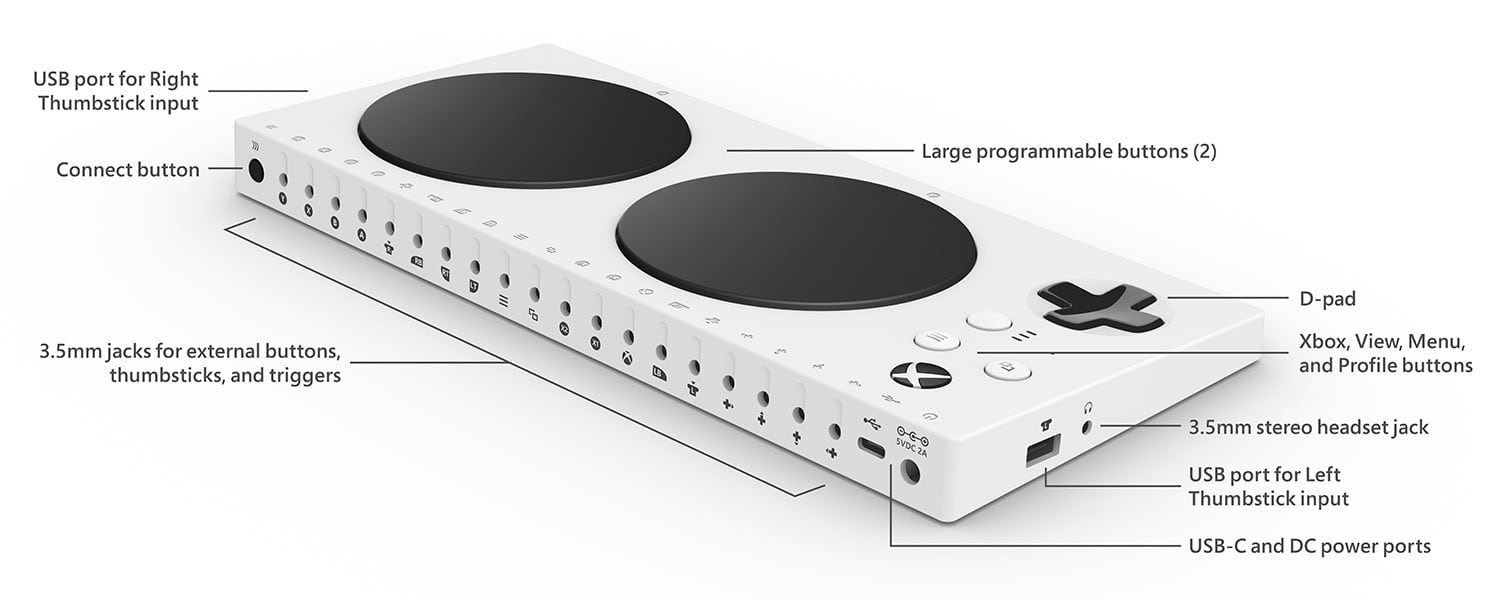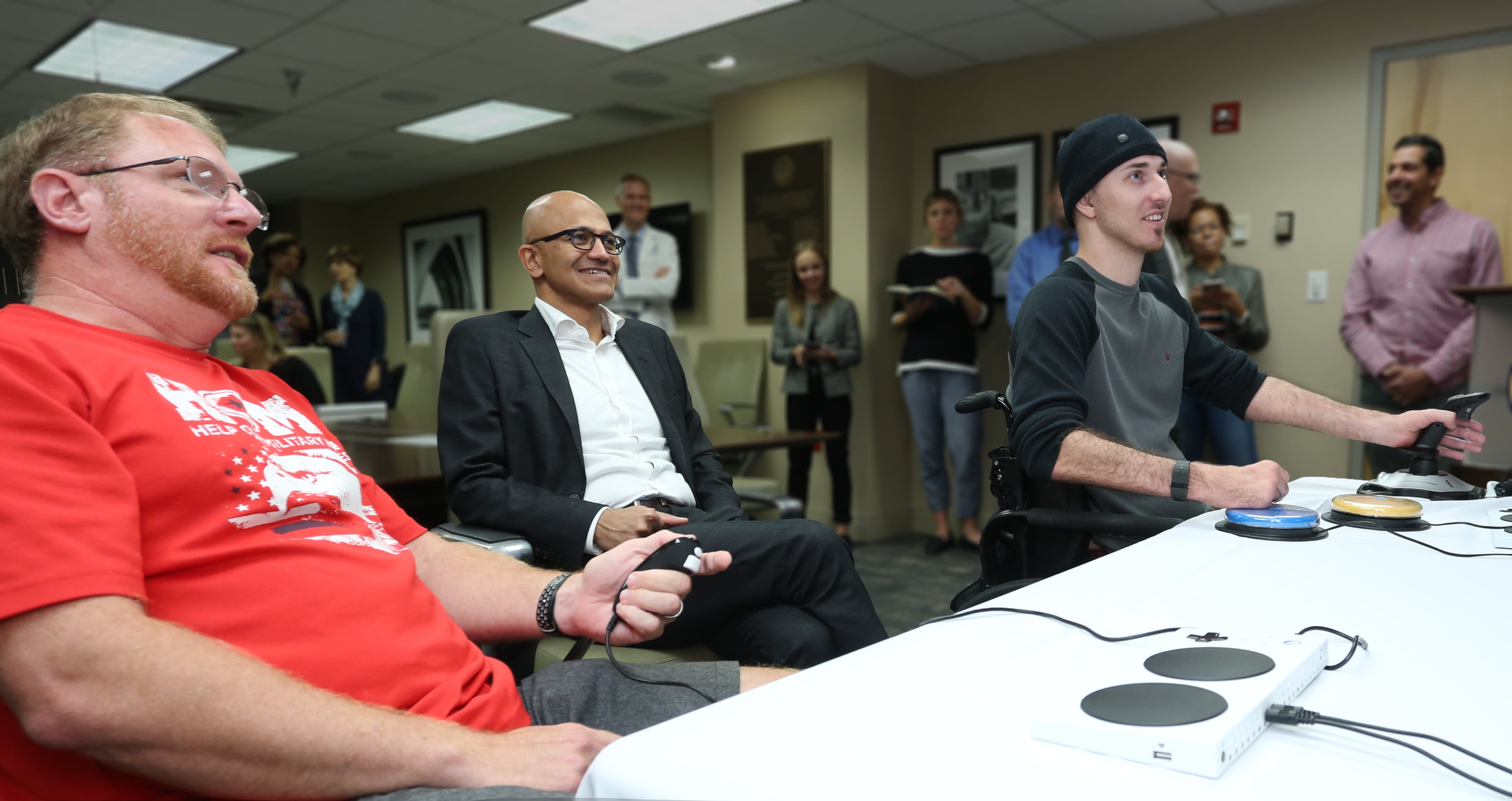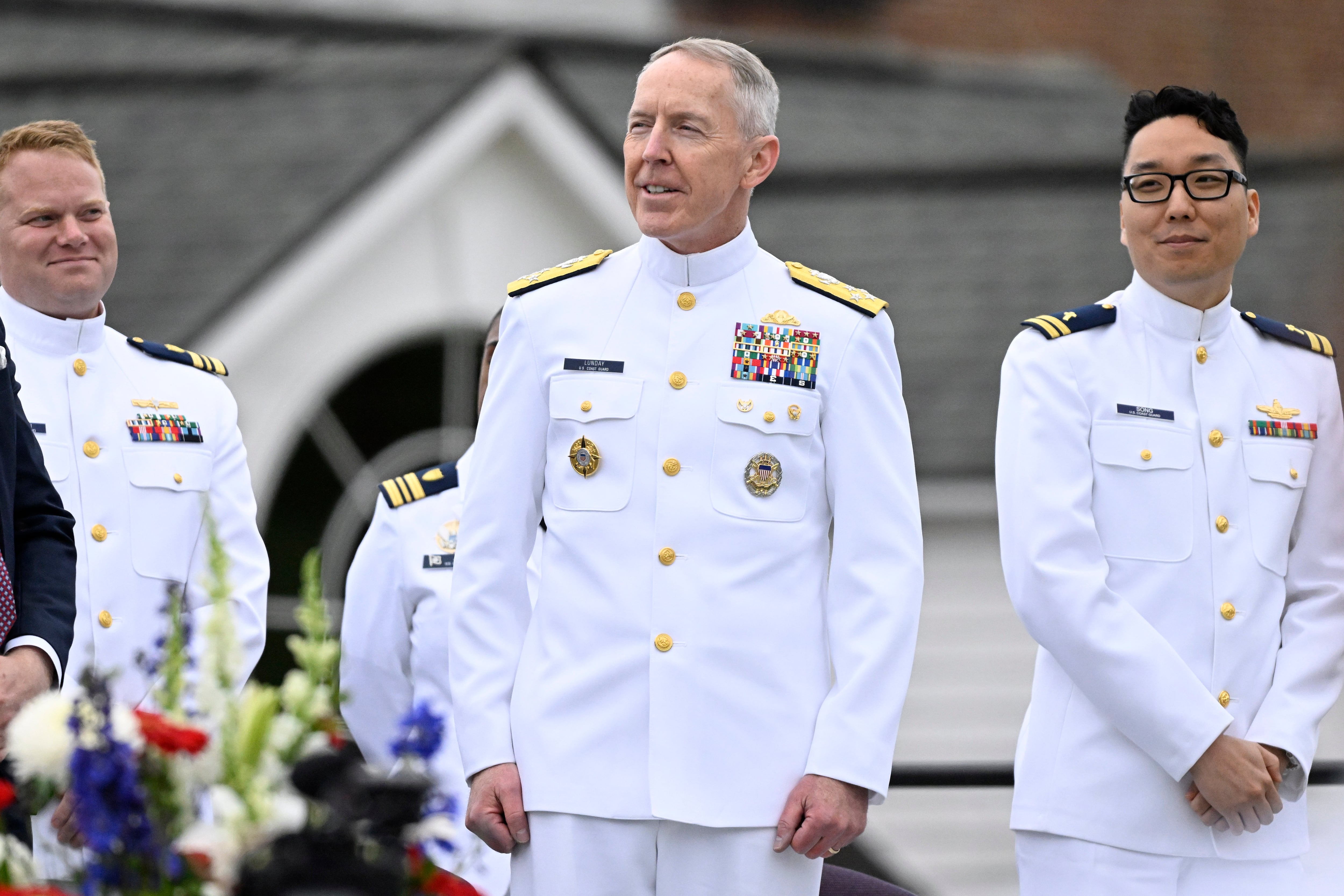Four decades ago, the U.S. Department of Veterans Affairs launched the National Veterans Wheelchair Games with only seven events. Now, video gaming, or esports, will become the newest medal event at this summer’s games.
But Jamie Kaplan, a recreational therapist at the James A. Haley Veterans’ Hospital in Tampa, Florida, has been on the forefront of video game therapy for a decade. In the facility’s gaming room, he has every system from Atari to Xbox One – all modified for disabled veterans.
“Video gaming was a way for us to bring [veterans] in – because it was something they are familiar with, something they enjoy doing,” Kaplan said.
Accessible gaming has become the focus of an ongoing partnership between the VA and Microsoft, which debuted their Xbox Adaptive Controller (XAC) in 2018. The device utilizes external buttons, switches and joysticks “to make gaming accessible to players with limited mobility.” Without it, many former service members would be unable to play video games at all.
The XAC, which is available at 24 VA facilities across the country, was the product of years of research and development.
Ken Jones, a mechanical engineer, began rigging gaming devices for injured veterans on a case-by-case basis after visiting Walter Reed National Military Medical Center Bethesda, Maryland, in 2012. At first, the modifications were simple, but they quickly became more complex as veterans with more challenging injuries expressed their desire for custom arrangements.
Jones founded the nonprofit Warfighter Engaged to supply the modified devices. It was Jones who created the rigged controller that Sgt. Josh Price used during a hackathon at Microsoft’s Ability Summit in 2015, catching the attention of the tech giant’s executives. Price had lost part of his right arm in a service-related injury.
Working with Jones, end-users and other disability advocates, Microsoft began developing an all-in-one accessible controller as part of their Gaming for Everyone initiative, further enhancing the product at the 2016 hackathon.
Bryce Johnson, inclusive lead at Microsoft Devices, worked extensively on the XAC since its inception. To him, the accessible controller is part of Microsoft’s larger goal of empowering all gamers worldwide. For the first time, the device standardizes a cost-effective, “plug-and-play" custom gaming rig for users and caretakers.
“At Xbox, we believe that when everybody plays, we all win,” he said. “With the Xbox Adaptive Controller, we are making it easier for these gamers to play and connect with the games and people they love.”
“The response from the community has been overwhelmingly incredible and positive, and we are so thankful to those who contributed to the creation of this controller,” Johnson added.

“It’s really good to see. It vindicates what we’ve been saying for years that this is something people need,” Jones said. “Just seeing veterans now able to interact with their teammates that they played with for years in the military and were basically shut out. Now, to be a part of that community again is really good.”
For troops, "this population definitely has a very strong interest in gaming, in esports, and that world was taken away from a lot of folks...due to physical disabilities,” said Dr. Leif Nelson, VA national director of adaptive sports. “This controller really opened up the door to make gaming accessible to everyone.”
In 2019, Kaplan hosted the first veterans’ esports tournament in Tampa with good results, and he is planning a Madden NFL 20 tournament on Jan. 31 to celebrate Super Bowl weekend. He hopes to expand similar events to include active-duty service members from nearby MacDill Air Force Base — home of U.S. Central Command, U.S. Special Operations Command, two Air Force wings and dozens of other mission partners — and even local professional athletes.
Kaplan ran video gaming lounges at two nationwide VA accessible events in the last year to introduce esports to the wider veteran community.
It was at one of these events that Roger Brannon first encountered adaptive esports. Brannon medically retired as a Marine Master Gunnery Sgt. in 2017 after being diagnosed with Lou Gehrig’s disease, also called amyotrophic lateral sclerosis, or ALS, in 2016. Veterans, specifically post-9/11 veterans, have a higher likelihood of developing ALS than civilians, according to a 2019 research study.
“Before, I couldn’t last 15 minutes with the regular joysticks. When I saw the XAC, I thought, ‘Wow, that could help a lot,'” Brannon said. “I am able to play video games with my son — Star Wars, race car games. We are spending more time together playing video games. It’s now something we can both do.”
Brannon also noted that video gaming with other veterans at nationwide events provides a welcomed community.
“We’ve gone from just talking online to bringing veterans in face-to-face with other peers, so they could start to develop relationships with people with similar backgrounds, similar interests and similar situations,” Kaplan said. “It’s not just a way for them to participate within the VA community, but to actually feel a part of their local community.”

To Nelson, the partnership naturally complements the VA’s ongoing adaptive athletics and therapy programs.
“It’s an incredibly crucial part of the rehab continuum,” said Nelson. “After folks go through an in-patient rehab program, then some sort of out-patient rehab, what’s after that? That’s where adaptive sports fit in for us.”
Microsoft’s introduction of the adaptive platform coincided with a 2018 research study that found video game play helps veterans manage stress levels, cope with ongoing symptoms and enjoy higher levels of self-confidence and camaraderie.
“Adaptive sports can be the springboard to better health, to employment, to getting back to school. Once you know you can achieve something, it raises the bar for all aspects of life,” Nelson added.
As part of the agreement, the VA provides Microsoft with direct feedback from veteran end-users to be integrated into the next generation of devices.
Jones said the current XAC, however, is remarkable for a first-generation device.
One of the most critical components to the Adaptive Controller is the “Copilot” feature. This 2017 software update allows a gamer to simultaneously use two controllers — one traditional Xbox controller and one XAC — to control a single player. Before, this feature would not have been possible.

This year’s National Veterans Wheelchair Games takes place in Portland, Oregon, from July 3-8 and is cosponsored by the VA and Paralyzed Veterans of America. The video gaming tournament — one of 20+ events — will be the “first-ever fully adaptive esports competition,” according to Nelson. The change signifies the VA’s commitment to fully integrate esports therapy.
“With the Adaptive Controller, it makes everybody equal. It allows these veterans to feel some sense of normalcy, or how they felt prior to their injury,” Kaplan added. “We don’t want them being their injury. We want them being their individual.”
Dylan Gresik is a reporting intern for Military Times through Northwestern University's Journalism Residency program.





